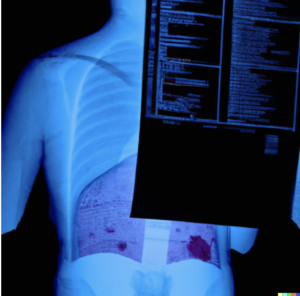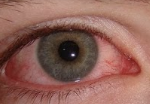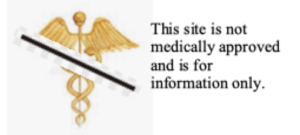 Sjogren’s syndrome is a chronic autoimmune disorder that primarily affects the exocrine glands, particularly those that produce tears and saliva. It is named after Dr. Henrik Sjögren, who first described the syndrome in 1933. Understanding Sjogren’s Syndrome is important for anyone diagnoses with the syndrome or experiencing the symptoms.
Sjogren’s syndrome is a chronic autoimmune disorder that primarily affects the exocrine glands, particularly those that produce tears and saliva. It is named after Dr. Henrik Sjögren, who first described the syndrome in 1933. Understanding Sjogren’s Syndrome is important for anyone diagnoses with the syndrome or experiencing the symptoms.
Characteristics of Sjogren’s Syndrome
This condition is characterized by the body’s immune system mistakenly attacking its own moisture-producing glands, leading to dryness of the eyes and mouth.
Symptoms:
 Dry eyes: Patients may experience a persistent gritty or burning sensation in the eyes, redness, sensitivity to light, and blurred vision.
Dry eyes: Patients may experience a persistent gritty or burning sensation in the eyes, redness, sensitivity to light, and blurred vision.
Dry mouth: Individuals may have difficulty swallowing, speaking, or tasting food. They may also develop frequent dental cavities and oral infections.
Fatigue: Many people with Sjogren’s syndrome experience persistent fatigue that is not relieved by rest.
Joint and muscle pain: Joint pain, swelling, and stiffness, similar to symptoms of arthritis, can occur.
Dry skin and rashes: Some individuals may have dry skin, skin rashes, or the sensation of crawling or itching on the skin.
Vaginal dryness: Women may experience vaginal dryness, discomfort during sexual intercourse, and an increased susceptibility to vaginal infections.
Salivary gland swelling: In some cases, the salivary glands located around the jaw and in the mouth may become swollen and tender.
Causes and Diagnosis of Sjogren’s Syndrome:
Causes
Doctors do not know the exact cause of Sjogren’s syndrome is unknown. They believe it to be a condition influenced by genetic, hormonal, and environmental factors. Sjogren’s Syndrome falls into the autoimmune disorder group. The body’s immune system mistakenly targets and attacks its own moisture-producing glands, leading to their dysfunction.
Diagnosis:
Diagnosing Sjogren’s syndrome can be challenging due to its varied and overlapping symptoms. A healthcare professional will typically conduct a thorough medical history review, physical examination, and order specific tests, including:
Blood tests: These may include tests for antibodies commonly associated with Sjogren’s syndrome, such as anti- SSA (Ro) and anti-SSB (La) antibodies.
SSA (Ro) and anti-SSB (La) antibodies.
Eye examination: An eye specialist (ophthalmologist) may conduct tests to evaluate tear production and assess the health of the eyes.
Salivary gland biopsy: A small sample of salivary gland tissue may be removed and examined to check for characteristic abnormalities.
Treatment and Relief Of Sjogren’s Syndrome:
Treatment of Sjogren’s Syndrome
The treatment for Sjogren’s syndrome aims to relieve symptoms, prevent complications, and manage any underlying autoimmune inflammation. It typically involves a multidisciplinary approach, and the specific treatment plan may vary depending on the severity of symptoms.
Common strategies for Symptom Relief:
Symptomatic relief: Artificial tears, lubricating eye gels, and saliva substitutes can be used to alleviate dryness of the eyes and mouth.
Medications: Nonsteroidal anti-inflammatory drugs (NSAIDs) may be prescribed for joint and muscle pain. Immunosuppressive drugs or corticosteroids might be used in more severe cases to suppress the immune system’s overactivity.
Moisture preservation: Measures such as humidifiers, avoiding dry environments, and staying hydrated can help maintain moisture levels.
Dental care: Frequent dental check-ups and good oral hygiene practices are crucial to prevent dental decay and infections.
Eye protection: Wearing sunglasses and using protective eyewear in dry or windy conditions can protect the eyes from further damage.
Patient education and support: Counseling and support groups can provide valuable information, emotional support, and coping strategies for individuals living with Sjogren’s syndrome.
It’s important for individuals with Sjogren’s syndrome to regularly follow up with their healthcare provider to monitor symptoms, manage complications, and adjust treatment as needed. It is also important to understand this syndrome whether diagnoses or with symptoms. The best way to do that is to read everything available.



It’s interesting I came across this article. A few years ago I was tested for Sjogrens due to getting thrush a few times in a couple years (as an adult!). The salivary gland biopsy came back negative, but it was an interesting period to go through. I would definitely recommend keeping communication open with your doctor to ensure you get the correct diagnosis because it seems like it is not something that is diagnosed very often.
Thanks for taking the time to read the article. My wife is going through this so there is a lot of interest in our family. I am glad you were not diagnosed with Sjogren’s. It certainly is not life threatening, but life changing.
Jim
Thanks a lot. Reading through this informative article, I gained a deeper understanding of the challenges faced by individuals living with this condition and the impact it has on their daily lives.
Learning about the importance of early detection, as well as the available treatment options, highlighted the potential for improved quality of life for those with Sjögren’s Syndrome. It’s truly inspiring to see the dedication of researchers, healthcare professionals, and advocacy organizations in raising awareness and advancing research for this condition.
To anyone who may be experiencing symptoms or seeking to support a loved one with Sjögren’s Syndrome, remember, you are not alone in this journey. Together, we can strive for a better understanding, improved care, and a brighter future for everyone affected by Sjögren’s Syndrome.
Thanks for taking the time to read the article and comment.
Jim
I have a friend who has been struggling with this condition for the last fifteen years. She wasn’t diagnosed until 2015, and still, she didn’t get the proper treatment. I remember going to pharmacies all around our town looking for a mouthwash that could help prevent dry-mouth, or any other complication that this condition may be attached to.
It is not life threatening but certainly life changing – can be very limiting.
Jim
Thank you for sharing this comprehensive introduction to Sjogren’s syndrome. It’s a condition that I’ve heard about but don’t know much about. I found the article very informative, but I have a few questions:
1. What are some common symptoms of Sjogren’s syndrome that people should be aware of? Are there any specific signs that may indicate a person should seek medical attention?
2. Are there different levels or variations of Sjogren’s syndrome, and how do they affect individuals differently?
3. I noticed that Sjogren’s syndrome is often associated with other autoimmune diseases. Could you elaborate on the connection between Sjogren’s syndrome and these other conditions?
4. How is Sjogren’s syndrome diagnosed? Are there specific tests or criteria that doctors use to confirm a diagnosis?
5. Are there any known treatments or management strategies for Sjogren’s syndrome? What can individuals do to alleviate symptoms and improve their quality of life?
You obviously have some expertise on the subject, which I totally appreciate and I look forward to any insights or additional information you can provide. Thank you!
The main symptoms are extreme dryness… no tears, no saliva, etc. It can wreck teeth and cause eye problems. The only levels are the severity of the symptoms. Sometimes they progress and sometimes they don’t. It is an autoimmune disease. It can lead to lupus, loss of teeth, extreme fatigue. Of course people monitor symptoms to make an initial diagnosis, but the only way to diagnosis is with a lip biopsy. It sounds weird, but that is the case. Symptoms are managed. Special lenses for the eyes. Gels and liquid for dry mouth. Sleep and sometimes steroids for fatigue. As I have said to others, it is not life threatening but life changing. Thanks for your questions.
JIm
I must admit that this is the first time that I have ever read or heard about Sjogrens Syndrome. It must be terrible to have dry and gritty eyes the whole time. Not to mention the host of other unpleasant symptoms that come with it. I am surprised that in this day and age that they haven’t found a cure for it yet.
The symptoms are treated individually. Different treatments work differently for each person. The emphasis in research seems to be more understanding the cause than finding one overall treatment. Thanks for taking the time to comment on the article.
Jim
I came across this informative article on Sjögren’s Syndrome, and I must commend the author for providing a comprehensive introduction to this often misunderstood and underdiagnosed condition. The article succeeds in shedding light on the key aspects of Sjögren’s Syndrome, making it a valuable resource for those seeking to understand and navigate this complex autoimmune disorder.
Your begins by explaining the basics of Sjögren’s Syndrome, including its prevalence, underlying causes, and the primary symptoms experienced by individuals with the condition. This foundation helps readers grasp the key characteristics of the syndrome and its potential impact on daily life.
this article serves as an invaluable introductory resource for anyone seeking to understand Sjögren’s Syndrome. The author’s comprehensive exploration of the condition, from its symptoms to diagnostic challenges and management, demonstrates a deep understanding of the topic. By increasing awareness and knowledge about Sjögren’s Syndrome, this article contributes to better recognition, diagnosis, and support for individuals living with this chronic autoimmune disorder.
I hope the article does help inform someone who is concerned about multiple symptoms that seem to be unexplained. Thanks for taking the time to read and comment.
Jim
Very interesting post. It’s interesting to hear that you were tested for Sjogrens due to experiencing thrush multiple times as an adult. Sjogrens syndrome is an autoimmune disorder that affects the glands that produce moisture in the body, such as the salivary and tear glands. One of the symptoms of Sjogrens is dry mouth, which can lead to an increased risk of developing thrush.
While it’s possible that your thrush could have been related to Sjogrens, it’s important to note that there are many other potential causes of thrush as well.
These can include factors such as weakened immune system, use of antibiotics, or certain medical conditions such as diabetes. If you continue to experience recurrent thrush or other symptoms that concern you, it may be worth speaking with a healthcare provider to determine the underlying cause and explore treatment options.
Thanks so much for the suggestion. The lip biopsy that my wife had provided the sjogren’s diagnosis. Her dry mouth symptoms are being addressed several ways. One result is that teeth are being damaged by the lack of moisture. I appreciate you taking the time to respond.
This informative post covers the symptoms, diagnosis, and management of Sjogren’s syndrome, an autoimmune condition that affects the body’s moisture-producing glands. It provides practical suggestions for relief, such as using artificial tears and medications, practising moisture preservation, and seeking patient education and support. A concise and valuable resource for understanding and managing Sjogren’s syndrome.
Sjogren’s has so many different symptoms that vary in degree from person to person that any one remedy is difficult find. Thanks for taking the time to read this article